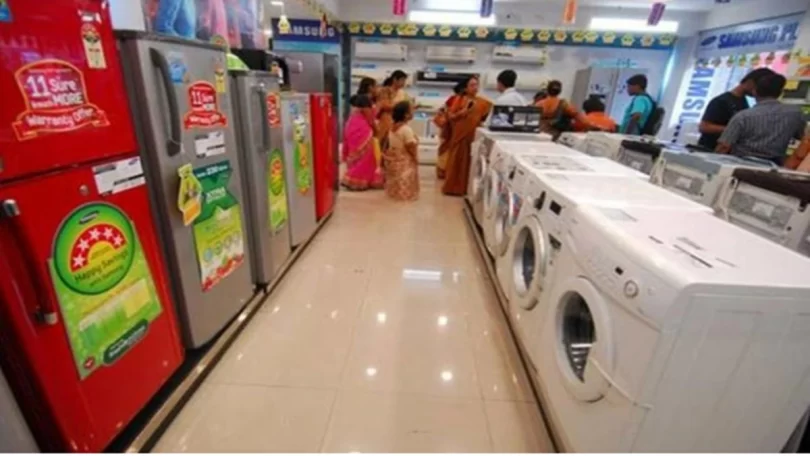[ad_1]
The consumer durables industry hopes the government will bring in specific initiatives in the upcoming Budget that will spur demand, such as change in tax slabs for individuals and some direction on reduction in the existing GST rates applicable on appliances.
With refrigerators, air-conditioners, televisions and other kitchen and home appliances becoming more of a necessity than luxury, consumer goods companies are looking at more sops at an individual level, which will lead to more disposable income in the hands of consumers, and in turn will drive sales for these products.
In the past 10-12 years, while the gross domestic product per capita has increased by 9.2% CAGR, the average selling price of key consumer durable products such as ACs, refrigerators and washing machines has increased by a moderate 4-5% CAGR, making these appliances far more affordable for consumers, according to a recent report by a domestic brokerage.
Also read: FMCG Q3 preview: Muted demand, but margins to improve, say analysts
While the AC, refrigerator and washing machine industry grew at a CAGR of 12.9%, 13.6% and 11.7%, respectively between the fiscal 2009-2010 and 2019-2020, it was among the worst hit during the two years of Covid, as demand plummeted and supply chains remained impacted. Since summer of 2022, the industry has seen some good growth numbers in the premium categories, but the mass segment continues to remain impacted due to high inflation.
“Although consumer sentiments are improving, these are yet to translate into a full momentum in demand,” FICCI observed in a pre-Budget note submitted to the government. A broad-based slowdown was witnessed across the segments – with key sectors including manufacturing, mining and quarrying and consumer goods noting a contraction, it said.
The industry now hopes that the government will bring in measures in the upcoming Budget which will support demand on a wider scale.
“Large appliances industry suffers from continued low penetration levels in India despite the positive impact on the quality of life and productivity. Further, last year saw stagnation in the high-volume mass segments due to prevailing economic conditions and low consumer sentiment among the middle class apart from continued cost impact to the industry due to commodity, currency, and regulatory norms,” said Kamal Nandi, business head and executive vice president, Godrej Appliances.
Nandi said that reduction in GST will help the appliance sales pick up. “A lower GST on appliances will help. Government should also consider larger stimulus to middle class to induce spends and lift overall economy which will benefit multiple sectors,” he said.
Also read: Food inflation falls sharply to 4.19%
Anuj Poddar, managing director and CEO, Bajaj Electricals Ltd said that the industry has a specific ask from the GST Council and the government to rationalise the GST rate on fans from 18% to 5%. “Given that in a hot, tropical country such as India, that is the most basic necessity for every home,” he said.
Poddar also said that while the government is providing a visible thrust to capex and infrastructural spending, it takes several years to enhance income at the level of individuals.
“In the current environment, the FM should consider specific initiatives that will lift consumer sentiment and demand. This could include a review of individual taxation slabs and other direct means of driving the consumer economy, for example, reduction of fuel taxes will reduce inflation and boost disposable income,” he said.
Manish Sharma, chairman, Panasonic Life Solutions India said the government should consider rationalisation of tax rates on certain consumer durable electronics such as ACs and televisions. He said that the lowering of tax slab to 18% from 28% would help in increase in demand for both split and window ACs and televisions above 41 inches, as it will bring down prices and improve affordability.
“A strong component ecosystem will help the industry. We have proposed changes in basic custom duty for different components. We also recommend zero duty under IGCR for all inputs (components and commodities) used in manufacture of parts such as motor, compressor, timer etc. Additionally, for refrigerators, imposing non-tariff barriers on FG imports is recommended, like in AC,” said Nandi
[ad_2]
Source link








